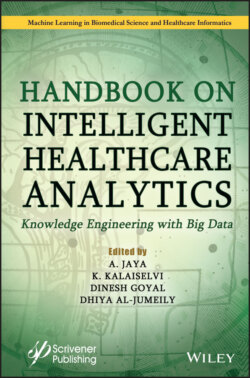Читать книгу Handbook on Intelligent Healthcare Analytics - Группа авторов - Страница 71
3.4.2 Knowledge in Healthcare
ОглавлениеIn general, the knowledge is classified into the following two categories [5]:
• Explicit knowledge
• Tactic knowledge
Explicit knowledge: The explicit knowledge refers to clear and unambiguous information that is very simple to distribute, written down, and coherent. Studying the life cycle of a parasite, research on cancer, etc., are some of the examples of explicit knowledge. In healthcare, explicit knowledge is identifying the medication to treat a disease.
Table 3.4 Summary of different sources of healthcare data [13].
| Sources of healthcare data | Details | Format |
| Medical records | The medical records consist of electronic health records (EHRs) and the electronic medical records (EMRs). These records offer information on laboratory tests, diagnoses, etc. The health records give all information of patients. | Structured and unstructured data |
| Human generated data | Clinical notes | Unstructured data |
| Machine generated data | Sensor devices data | Structured and unstructured data |
| Transaction data | Billing records and insurance claims | Structured and semi-structured data |
| Social Media data | Search engine data and social media post | Unstructured data |
Tactic knowledge: The tactic knowledge is gained from the course of experience which is more difficult to express. It lies sub-consciously within the human and is improved by continuous practice.
In the healthcare industry, both the tactic knowledge and the explicit knowledge are used together for the diagnosis of many diseases.
In healthcare industry, knowledge is classified into three types:
Provider knowledge: The provider knowledge integrates both tactic and explicit knowledge. For example, in healthcare, a doctor should know the standard treatment for a particular disease. Doctors will gain internal knowledge through years of experience for better treatment.
Patient knowledge: Patient knowledge is tactic knowledge. “Patient’s knowledge” is the knowledge of a patient about their medical condition. This information is important for the provider to treat the disease.
Organizational knowledge: The organizational knowledge is the data available for both provider and patient access.
The knowledge in healthcare is essential because healthcare industries are knowledge driven industries.
